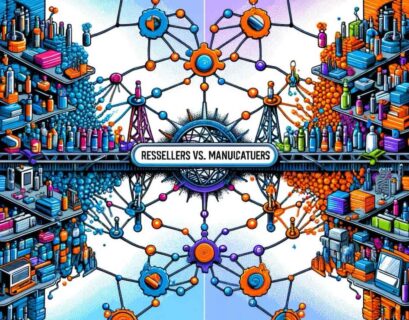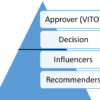In today’s dynamic and hyper-competitive technology sales landscape, success is often synonymous with collaboration. To thrive and excel, technology sales professionals must recognize and harness the power of partner ecosystems. These ecosystems are intricate networks of alliances and partnerships that bring together various stakeholders, including vendors, resellers, service providers, and customers. Here, we’ll explore why these ecosystems are indispensable in the world of technology sales.
1. Expanding Reach and Customer Base
One of the primary advantages of a partner ecosystem is its capacity to significantly expand the reach of technology sales professionals. By collaborating with a diverse array of partners, sales teams can tap into previously untapped customer segments and geographical markets. This extended reach translates into increased visibility, more leads, and ultimately, higher sales.
2. Leveraging Expertise and Resources
Technology is evolving at an unprecedented pace, and staying ahead of the curve requires a deep pool of expertise and resources. Partner ecosystems provide access to a wealth of knowledge, skills, and tools. Whether it’s the technical know-how of a solution provider or the industry insights of a reseller, these partners bring valuable assets to the table. Sales professionals can leverage these resources to enhance their product offerings and provide comprehensive solutions to customers.
3. Enhancing Credibility and Trust
Trust is paramount in technology sales. Customers want assurance that the solutions they invest in will deliver on their promises. Partnering with reputable vendors and service providers bolsters the credibility of sales professionals. It signifies that their offerings have undergone rigorous scrutiny and meet industry standards. This added layer of trust can be a game-changer when closing deals.
4. Streamlining the Sales Cycle
Partner ecosystems often come with established processes and relationships that can streamline the sales cycle. Instead of starting from scratch with each prospect, sales teams can tap into existing channels and connections. This expedites lead generation, accelerates negotiations, and shortens the time to close deals. The result is increased efficiency and more time for sales professionals to focus on what they do best—selling.
5. Delivering Comprehensive Solutions
In the complex world of technology, customers are looking for comprehensive solutions that address their specific needs. Partner ecosystems allow sales professionals to bundle products and services seamlessly. This approach not only simplifies the purchasing process for customers but also positions sales teams as trusted advisors who can cater to all aspects of a technology solution.
6. Navigating Regulatory and Compliance Challenges
Technology sales often involve navigating a maze of regulatory and compliance challenges. Partnering with organizations well-versed in these areas can be a lifesaver. These partners can provide guidance on compliance requirements, help customers navigate legal hurdles, and ensure that solutions align with industry regulations.
7. Adapting to Market Changes
The technology landscape is subject to constant shifts, from emerging trends to disruptive innovations. Partner ecosystems offer the flexibility needed to adapt to these changes swiftly. Sales professionals can tap into the expertise of partners to understand market dynamics, identify new opportunities, and pivot their strategies accordingly.
In conclusion, partner ecosystems are not just beneficial but essential in the world of technology sales. They provide access to a wider customer base, a wealth of expertise, enhanced credibility, streamlined processes, comprehensive solutions, regulatory guidance, and adaptability to market changes. By recognizing and nurturing these partnerships, technology sales professionals can unlock a world of opportunities and propel their success to new heights.












